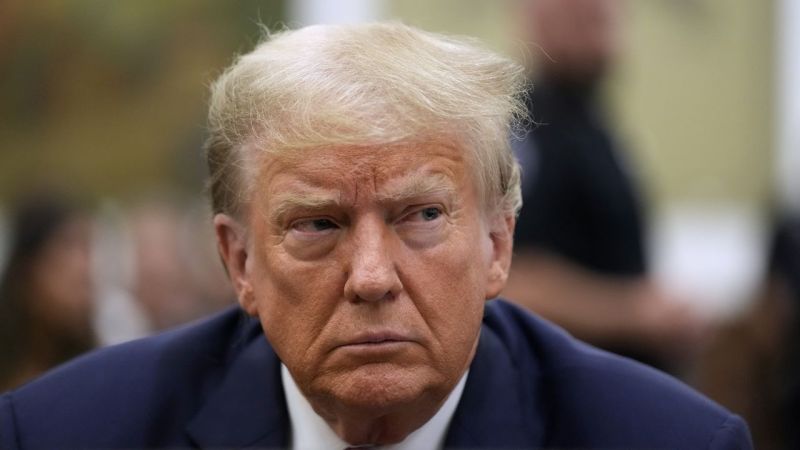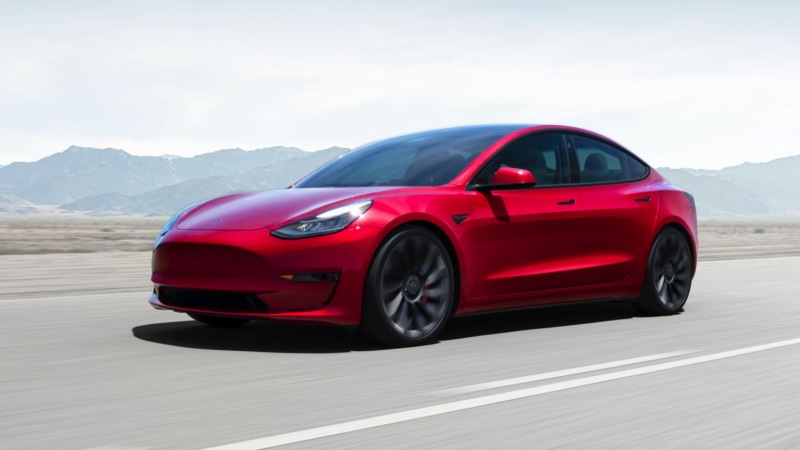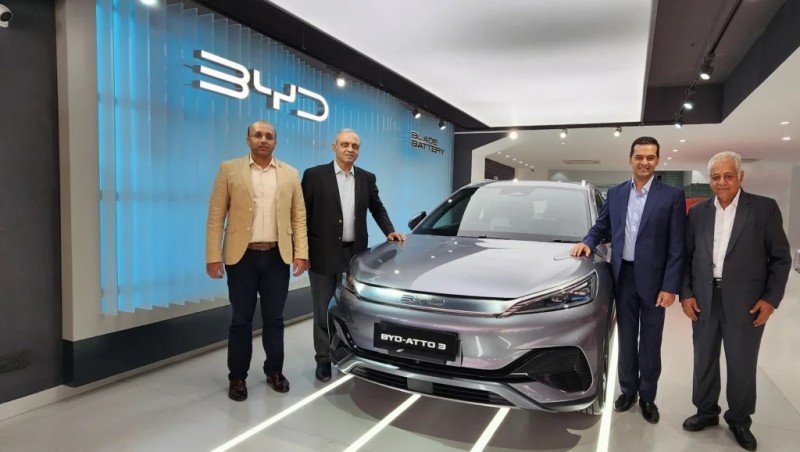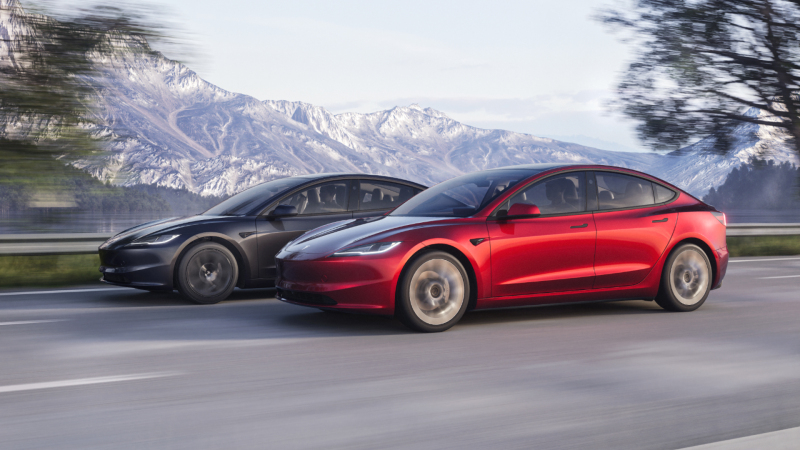Tesla plans to build a factory in India, Trump says this is unfair to the United States
 AshleyFeb 21, 2025, 02:23 PM
AshleyFeb 21, 2025, 02:23 PM
[PCauto] In a recent media interview, Donald Trump stated that should Tesla establish a manufacturing facility in India to circumvent the country’s high tariffs, it would be “unfair, very unfair” to the United States. His comment reflects concerns over India’s tariff policies and Tesla’s broader globalization strategy.

Just a week earlier, during Prime Minister Narendra Modi’s visit to the U.S., Trump lambasted India for enforcing tariffs as high as 100% on imported vehicles, asserting that such measures render it “nearly impossible to sell cars in India.” Nonetheless, both sides agreed to advance trade negotiations in an effort to resolve the tariff impasse. Notably, during a meeting on 14 February 2025, it is believed that Elon Musk and Modi discussed Tesla’s potential entry into the Indian market.
In March 2024, the Indian government unveiled a policy that reduces the import tariff to 15% for any automobile company that commits to investing at least $500 million in building a local manufacturing facility. Tesla has already earmarked sites in New Delhi and Mumbai for showrooms and has even released recruitment postings, although production has yet to commence. Trump contends that Tesla’s strategy will disadvantage American interests and could prompt his proposed “reciprocal tariff” policy—which would impose an equivalent rate on imported vehicles from countries that tax U.S. goods—thus intensifying global trade tensions.

What motivates Musk to pursue the Indian market despite Trump’s criticisms? India ranks as the world’s third-largest automotive market, yet its electric vehicle penetration rate remains modest at approximately 5.59% as of 2024. With the government targeting a 30% market share for electric vehicles by 2030, the opportunity for growth is substantial. By introducing a policy that lowers tariffs to attract foreign investment in local manufacturing, India offers Tesla a notable cost advantage: a potential reduction of import duties from 100% to 15%, thereby enabling a more cost-effective market entry.
Furthermore, Tesla’s competitors—such as BYD and MG—have already secured positions in India’s burgeoning new energy sector, and Tesla risks missing a pivotal growth opportunity if it remains on the sidelines. In addition, Musk envisions integrating SpaceX’s Starlink services in India, potentially generating synergistic benefits across multiple sectors.

Conversely, Trump has long championed the protection of domestic industries, arguing that punitive tariff policies enable other nations to benefit at the expense of the U.S. He maintains that India’s high tariffs severely impede American automakers from penetrating its market, and if Tesla shifts production to India to sidestep these tariffs, it could undermine the competitive edge of U.S. manufacturing.
Trump’s plan to impose equal tariffs on any country that taxes American goods—for example, instituting a 25% tariff on imported vehicles—means that if Tesla builds a factory in India, it might be seen as “evading American interests,” thereby risking damage to his policy credibility.
Moreover, Trump’s remarks might serve as a means to pressure India into lowering its tariffs. However, the allure of the Indian market for Tesla far outweighs the drawbacks of a short-term trade dispute, and the conflict between the two sides may endure over the long term. Additionally, his tariff policies could spark a multi-front trade war involving both allies and adversaries, heightening global economic uncertainty.

Tesla’s foray into India represents both a natural strategy for market expansion and a pragmatic response to existing trade barriers, while Trump’s “unfair” criticism underscores the clash between his protectionist logic and the demands of globalized commerce. This contest not only affects U.S.-India trade relations but also highlights the delicate balance multinational companies must achieve between localization and globalization. Ultimately, Tesla’s successful establishment in India will largely depend on the outcome of U.S.-India negotiations and Musk’s ability to navigate a complex array of risks.
If any infringement occurs, please contact us for deletion
Trending News

2025 Toyota Aqua Released, Fuel Efficiency 35.4km/L, More Worth Buying Than Corolla
[PCauto] Against the backdrop of the global automotive market's continuous transition toward electrification, the Toyota Aqua, as a compact hybrid model from the brand, has always been renowned for its high efficiency and practicality.The 2025 Toyota Aqua has been officially unveiled recently, drawing market attention once again with multiple technological upgrades and high fuel efficiency.This model is built on the TNGA-B platform, achieving a new breakthrough in fuel consumption performan

Zeekr 9X will be launched in China on August 29 and has attracted attention due to its resemblance to the Cullinan
[PCauto] Geely's premium electric vehicle brand Zeekr announced that its first luxury flagship hybrid SUV model, the Zeekr 9X, will officially start pre-sale in China on August 29, 2025.This full-size luxury SUV has attracted significant market attention for its resemblance to the Rolls-Royce Cullinan in appearance, as well as its luxurious interior design and high level of configuration.Zeekr 9X Positioned as a Full-Size Luxury SUVThe Zeekr 9X dimensions are 5239/2029/1819mm, with a wheelb

2026 Malaysia EV Road Tax Policy Analysis: Costs and Opportunities After the End of Exemptions
As December 31, 2025, approaches, electric vehicle owners in Malaysia will face a significant policy turning point — the four-year electric vehicle road tax exemption policy is coming to an end. Starting from January 1, 2026, all electric vehicles will be subject to an annual road tax based on a new power-based tiered tax system. This change marks a transition for Malaysia's electric vehicle market from a policy-driven phase to a new stage of market-oriented development, bringing new considerations for both consumers and the industry.

BYD Malaysia CKD factory established in Tanjung Malim, production to start in 2026
[PCauto] On August 22, 2025, BYD officially announced through its Malaysian official distributor, BYD Sime Motors, that it will invest in building a local assembly (CKD) plant in the KLK Technology Park in Tanjung Malim, Perak. The plant is expected to commence production in 2026. This plant, covering an area of 150 acres (approximately 600,000 square meters), will adopt a completely knock-down assembly mode, with complete kits imported from China for localized production in Malaysia.

The fifth-generation Geely Emgrand car photos released, with upgrades in body size and power system
As a family sedan with cumulative sales exceeding 4 million units in China, the new generation Emgrand will further consolidate Emgrand's competitive position in the sedan market through stronger product capabilities.
Popular Cars
Car Compare
Model Year
car model

